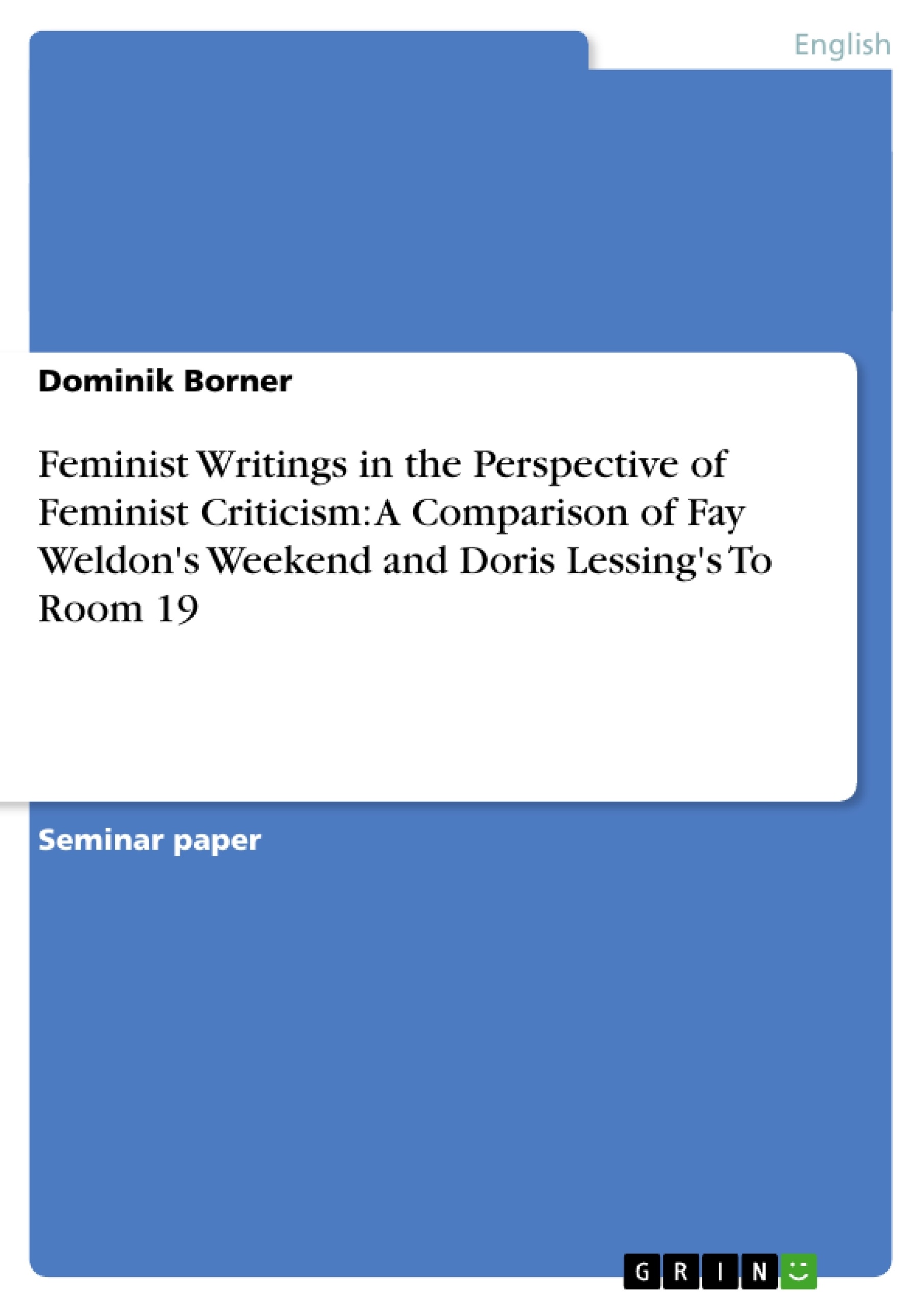1. Introduction
Early in the morning she rises,
The Woman’s work is never done.
And it’s not because she doesn’t try,
She’s fighting a battle with no one on her side.
She rises up in the morning,
And she works ‘til way past dusk.
The woman better slow down,
Or she’s gonna come down hard.
Early in the morning she rises,
The woman’s work is never done.
Woman’s Work, by Tracy Chapman (1992)
“Ah, to be all things to all people: children, husband, employer, friends! It can be done: yes, it can: super woman” (Weldon 1988, 312).
The short stories Weekend by Fay Weldon and Doris Lessing’s To Room 19 resemble each other in the aspect of presenting two female characters struggling in their lives under the pressure of the multiple roles they are to fulfill every day. But despite the superficial similarity of these stories, the two female authors chose different ways of pointing out the general themes of patriarchy and female entrapment to the reader.
Feminist literary criticism covers a broad range of theories and politics and it is hard to define the one feminist approach, however one of the main goals of feminist critics has been to point out patriarchal structures , oppression of women and inequalities of power between men and women. While these themes are often implicitly hidden in male literature, Weldon and Lessing dramatize and display them explicitly in their short stories. In this paper, some of the aspects of feminist theory will be applied to focus on the author’s different ways of presenting patriarchal structures by analyzing the similarities, but most importantly the differences in their respective settings and characters. To create a basis for discussion, in the following chapter an analysis of the female and male main characters will be connected with a deeper look at the general themes and motives that both short stories display. Subsequently, the third chapter will deal with the significant differences of the characters and the plots, leading into the question in which way the authors influence their readers and what effect on the reader each author may have desired.
Table of Contents
- Introduction
- Characters and Themes
- Responsibilities and Desires
- Reason versus Emotion
- Differences of the Characters
- Different Ways of displaying Oppression
- Differences in Setting and Perspective
- Conclusion
Objectives and Key Themes
This paper analyzes two short stories, Fay Weldon's "Weekend" and Doris Lessing's "To Room 19," focusing on the female characters' struggles within the context of patriarchal structures and societal expectations. The paper examines the authors' different approaches in portraying female entrapment and the limitations imposed on women by traditional gender roles.
- The impact of patriarchal structures on women's lives
- The tension between women's responsibilities and desires
- The challenges faced by women in balancing work and family life
- The portrayal of female characters and their experiences of oppression
- The authors' different perspectives on the nature of women's struggles and their potential for liberation
Chapter Summaries
The introduction sets the context for the analysis by exploring the themes of patriarchy and female entrapment within the framework of feminist literary criticism. The paper introduces the two short stories and highlights their similarities and differences in presenting these themes.
The second chapter analyzes the main characters, Martha and Martin in "Weekend" and Susan and Matthew in "To Room 19." It explores their responsibilities and desires, particularly focusing on how their roles as wives and mothers shape their experiences and perspectives. The chapter also delves into the broader societal expectations placed upon women in the context of their work and family lives.
The third chapter focuses on the differences between the two stories. It examines how the authors portray the characters' experiences of oppression, the settings, and the overall perspectives presented by the stories. The chapter analyzes how these differences influence the reader's understanding of the themes and the authors' intentions in presenting these narratives.
Keywords
Patriarchy, feminist literary criticism, female entrapment, gender roles, societal expectations, female characters, domesticity, work-life balance, oppression, narrative perspective, short story analysis.
- Quote paper
- Dominik Borner (Author), 2005, Feminist Writings in the Perspective of Feminist Criticism: A Comparison of Fay Weldon's Weekend and Doris Lessing's To Room 19, Munich, GRIN Verlag, https://www.grin.com/document/38811




